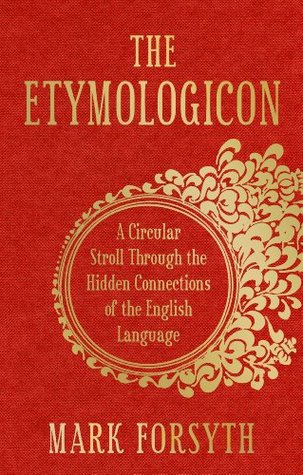More on this book
Community
Kindle Notes & Highlights
by
Mark Forsyth
Read between
November 14 - December 30, 2021
Pantophobia, for example, is the granddaddy of all phobias as it means a morbid fear of absolutely everything. Pantophobia is the inevitable outcome of pandiabolism – the belief that the Devil runs the world – and, in its milder forms, is a panpathy, or one of those feelings that everybody has now and then.
Milton adored inventing words. When he couldn’t find the right term he just made one up: impassive, obtrusive, jubilant, loquacious, unconvincing, Satanic, persona, fragrance, beleaguered, sensuous, undesirable, disregard, damp, criticise, irresponsible, lovelorn, exhilarating, sectarian, unaccountable, incidental and cooking. All Milton’s. When it came to inventive wording, Milton actually invented the word wording.
Naughty used to be a much more serious word than it is now, but it has been overused and lost its power. So many stern parents have called their children naughty that the power has slowly drained from the word. If you were naughty it used to mean that you were a no-human. It comes from exactly the same root as nought or nothing. Now it just means that you’re mischievous.
Now, you may ask yourself, what sort of person goes around peering at butterfly poo and then naming an insect after it? The answer, it would appear, is that Dutch people do that. Or at least, an old Dutch word for butterfly was boterschijte.
Dutch courage is the courage found at the bottom of a bottle, and a Dutch feast is a meal where the host gets drunk before his guests. Dutch comfort is no comfort at all. A Dutch wife is simply a large pillow (or in gay slang something far more ingenious). A Dutch reckoning is a fraudulent price that is raised if you argue about it. A Dutch widow is a prostitute. A Dutch uncle is unpleasant and stern, and only tight-fisted diners insist on going Dutch. That’ll show them.
Basically, the Slavs had a hard time of it. When they weren’t being slain by Basil in the south they were being subjugated by the Holy Roman Empire in the north and forced into lives of servitude. So many Slavs were defeated and oppressed that the word Slav itself became interchangeable with forced labourer, and that’s where we got the word slave.
Morpheus, from which morphine derives, was the Greek god of dreams. He was the son of Sleep and the brother of Fantasy, and he lived in a cave near the underworld where he would make dreams and then hang them upon a withered elm until they were ready to use.
People did do their physical training at the gymnasium, in fact they did it naked. The word gymnasium comes from the Greek gymnazein, meaning to train in the nude, which itself comes from gymnos, meaning naked. But if you could take your mind off the naked boys (which many Greek philosophers found difficult), gymnasiums were also places for socialising and debating and teaching philosophy.
Back in ancient Rome, though, they didn’t like women having jobs at all. In fact, almost the only women who had jobs in Rome were the women who stood in front of brothels looking for customers. The Latin for standing in front of things is pro-stitutio. It was a way of earning a living, almost the only one for a girl,
So almost every form of money involves death, danger and destruction. A frightened word-lover might start to wish that the stuff had never been invented at all. It is, after all, possible to run a society without any money. America, which is now the land of the fast buck, had no money until European colonists arrived. Well, almost. On the coasts of the North-East they used clam shells called wampums that could be threaded together into necklaces, and in Mexico they used cocoa beans as a standard by which to barter; but the point, essentially, stands. There were no coins, no notes, no green and
...more
Buckskins soon became the standard unit of barter in North America, and a standard unit of barter is, in effect, money. So it was buckskins, or bucks for short, that were used for trade.
The leaves of buckwheat look very similar to the leaves of a beech tree. The German for beech is Buche and so buckwheat is really beechwheat. Beech trees were important to the ancient Germans. Beechwood is thick-grained and not splitty (to use woodworking terminology), so it’s easy to carve things in it, and that’s exactly what the Germans used to do. Beech, buche or bok, as it was called in Old High German, was the standard material for writing on. Even when wood was finally overtaken by the newfangled invention of parchment, the Germans kept the name, and so did the English. Bok became boc
...more


